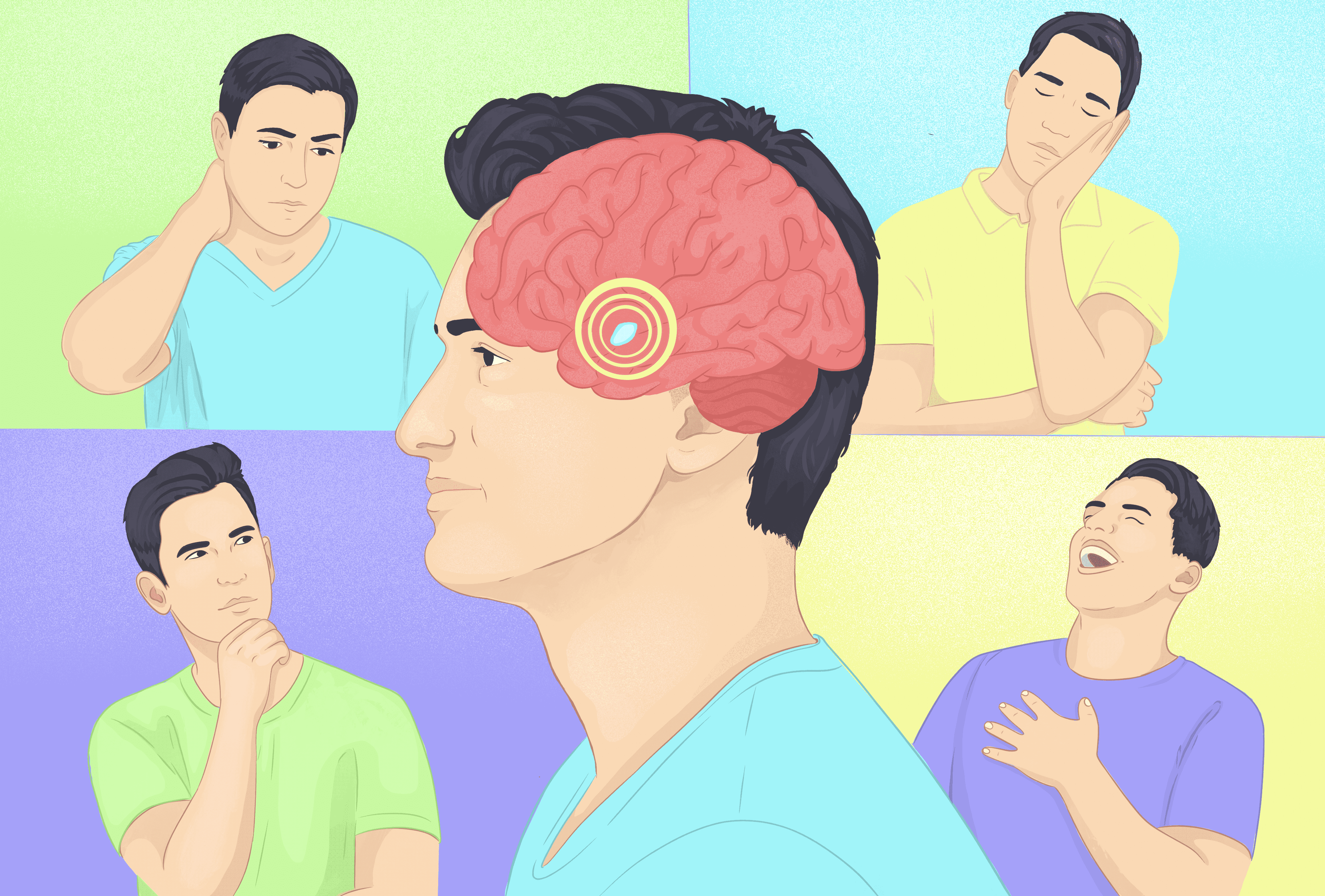The Brain's Anger Control Center: A Neuroscience Case Study
Have you ever wondered what part of the brain controls emotions like anger?

Have you ever wondered what part of the brain controls emotions like anger? We've all felt the heat of this powerful emotion - that surge of feeling that can make our hearts race and our faces flush. But what's really going on in our brains when anger takes hold?
Anger is a complex emotion with deep roots in our neurobiology. Research has shown that specific regions of the brain play crucial roles in processing and regulating this intense feeling.
By understanding the neuroscience behind anger and discovering what part of the brain is responsible for controlling it, we can gain valuable insights into how to better manage this emotion. We can learn to work with our brain's emotional control center, rather than against it.
In this article, we'll take a fascinating journey into the brain to explore the neurological basis of anger. We'll uncover what part of the brain controls emotions like anger and discover cutting-edge strategies for promoting healthy emotional processing and anger management, informed by the latest neuroscience research.
So let's dive in and reveal the secrets of the angry brain!
What Part of the Brain Controls Emotions Like Anger? Exploring the Limbic System
We've all experienced the rollercoaster of emotions, but have you ever wondered what's happening inside your brain? It turns out that two key players - the amygdala and prefrontal cortex - are at the helm of your emotional control center.
The amygdala, a tiny almond-shaped structure deep within the brain, is like a vigilant sentinel, always on the lookout for threats. When it perceives danger, it sounds the alarm, triggering the fight-or-flight response and flooding your body with stress hormones.
Meanwhile, the prefrontal cortex acts as the rational, decision-making counterpart. This region helps regulate emotions, putting the brakes on the amygdala's knee-jerk reactions. It's like having a wise, calming friend talking you down from a ledge.
Research shows that when these two regions work in harmony, we're better equipped to manage our emotions, including anger. But sometimes, the delicate balance is disrupted, leading to emotional dysregulation.
The Amygdala's Role: How Our Brain's Alarm System Fuels Fury
Meet John, a 35-year-old software engineer whose life was turned upside down by uncontrollable anger. Despite his successful career, John found himself lashing out at coworkers and loved ones over minor frustrations.
His outbursts led to strained relationships and poor performance reviews at work. Neuroscience reveals that John's amygdala, the brain's alarm system, was hijacking his rational thinking.
A study by Dr. Denson at the University of New South Wales found that 'anger can impair people's capacity for logical reasoning,' explaining John's struggle. With his prefrontal cortex - the brain's anger control tower - overpowered, John felt helpless.
His anger was controlling him, not the other way around. John's story is a powerful reminder of how a dysregulated emotional control center can wreak havoc on our lives.
Taming the Amygdala: Your Brain's Emotional Command Center
We've explored the neuroscience behind anger, but what can we do to promote healthy emotional processing? Cutting-edge research suggests that mindfulness meditation can be a powerful tool. By practicing mindfulness, we can train our prefrontal cortex to better regulate the amygdala's emotional responses.
Another effective strategy is cognitive reappraisal - reframing anger-provoking situations in a more positive light. A study by Dr. James Gross at Stanford University found that reappraisal can significantly reduce the intensity and duration of anger.
We can also harness the power of deep breathing to calm our nervous system. When we're angry, our breathing becomes shallow and rapid. By taking slow, deep breaths, we signal to our brain that it's time to relax and regain control.
Remember, managing anger is a skill that can be learned and improved with practice. By integrating these science-backed strategies into our daily lives, we can become masters of our emotional control center and lead a more peaceful, fulfilling life.
Wrapping Up: Taming the Amygdala, Your Brain's Anger HQ
We've taken a fascinating journey through the neuroscience of anger, uncovering the complex interplay between the amygdala and prefrontal cortex in our brain's emotional control center. By understanding how these regions function and can become dysregulated, we gain valuable insights into managing our own emotions more effectively.
John's story serves as a powerful reminder that with the right strategies and support, we can all learn to master our emotional control center. Whether it's through mindfulness meditation, cognitive reframing, or other science-backed techniques, there are many paths to promoting healthy emotional processing and anger management.
As we navigate the challenges of daily life, remember that you have the power within your own brain to transform your relationship with anger. With patience, practice, and a commitment to self-growth, you can train your brain for greater emotional resilience and well-being. The journey may not always be easy, but the rewards - a calmer mind, healthier relationships, and a more fulfilling life - are truly worth it.

Emotions often get the best of us: They make us worry, argue, procrastinate…
But we’re not at their mercy: We can learn to notice our triggers, see things in a new light, and use feelings to our advantage.
Join Ahead and actually rewire your brain. No more “in one ear, out the other.” Your future self says thanks!
Related Articles
“Why on earth did I do that?!”
“People don’t change” …well, thanks to new tech they finally do!
How are you? Do you even know?
Heartbreak Detox: Rewire Your Brain to Stop Texting Your Ex
5 Ways to Be Less Annoyed, More at Peace
Want to know more? We've got you


